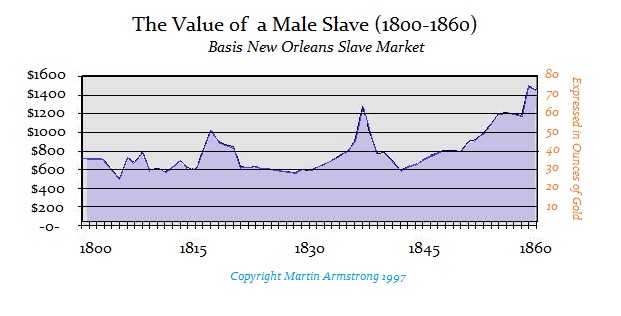COMMENT:
You said:
“The wealth of a nation is the total productivity of its people. If I have gold and want you to fix my house, I give you the gold for your labor. Thus, your wealth is your labor, and the gold is merely a medium of exchange. So it does not matter whatever the medium of exchange might be.”
A few points:
1) The Confederacy based on slavery, according to you, was very wealthy. But true wealth is NOT based on theft, on the forced productivity of others. It’s based on the voluntary cooperation of individuals, and called free trade.
2) True, other mediums of exchange have been used — but gold and silver are considered to be the best, and the one instilling the most confidence. And confidence in a medium of exchange, as well as in government, is paramount. In addition, ALL these mediums of exchange were tangible — a concept you’ve repeatedly denied.
3) You’ve yet to explain how such a system of intangible money would work. Given the seemingly inherent weakness of individuals to corrupt government I don’t see how this could possibly work.
JC
REPLY: Most of the time I do not bother with such emails for they just illustrate the total lack of an open mind trapped in this world of thought that says money must be tangible. To begin with the extrapolation that somehow labor means the South was rich because they had slaves is really off the wall. The value of a male slave rising and falling with the business cycle demonstrates that the Civil War to them was about their “asset value” since slaves were in fact property. They were now free or worthless. They were quite valuable and reached about 75 ounces of gold in value. So a male slave was by no means unimportant economically to the South.
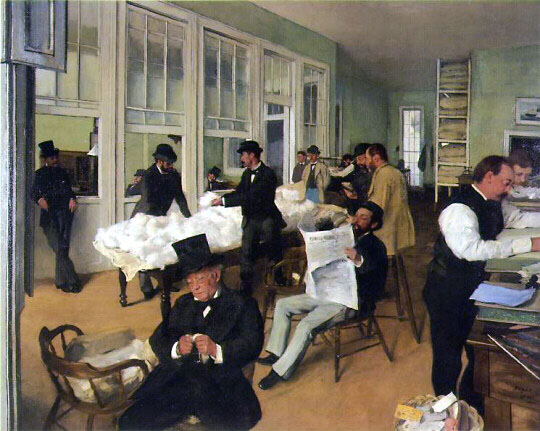 The South was not a manufacturing based economy, but commodity namely cotton followed by tobacco. They derived the bulk of their economic wealth from commodities, which required labor. They began buying criminals from England, which was transporting them to America, and selling them into indentured servitude for a specific number of years. Ben Franklin objected to the practice asking how would England like it if they sent them bags of rattlesnakes? To say the South was “rich” because they had slaves is a gross distortion of reality. I would suppose what you are saying is you are a worthless piece of humanity if you do not possess gold. But how do you get the gold? Do you rob others? Or do you employ your labor to earn it? Perhaps it just falls from heaven.
The South was not a manufacturing based economy, but commodity namely cotton followed by tobacco. They derived the bulk of their economic wealth from commodities, which required labor. They began buying criminals from England, which was transporting them to America, and selling them into indentured servitude for a specific number of years. Ben Franklin objected to the practice asking how would England like it if they sent them bags of rattlesnakes? To say the South was “rich” because they had slaves is a gross distortion of reality. I would suppose what you are saying is you are a worthless piece of humanity if you do not possess gold. But how do you get the gold? Do you rob others? Or do you employ your labor to earn it? Perhaps it just falls from heaven.
 Your definition of “tangible” is self-aggrandizing. Gold was NEVER money for nearly the first 3,000 years. Money was always “tangible” for that meant it had some utilitarian value such as cattle, grain, or bronze. Hello? Ever hear of the Bronze Age? Bronze ingots of trade formed the basis of the monetary system in Asia and in the West at least until 1000 BC – not silver or gold. Why? Because a “tangible” monetary unit of value did not depend upon government, it had to have some PRACTICAL value. That was exclusively bronze or food be it cattle, grain, or rice as was the case in Asia. Neither silver nor gold had any such real “usable” value in trade.
Your definition of “tangible” is self-aggrandizing. Gold was NEVER money for nearly the first 3,000 years. Money was always “tangible” for that meant it had some utilitarian value such as cattle, grain, or bronze. Hello? Ever hear of the Bronze Age? Bronze ingots of trade formed the basis of the monetary system in Asia and in the West at least until 1000 BC – not silver or gold. Why? Because a “tangible” monetary unit of value did not depend upon government, it had to have some PRACTICAL value. That was exclusively bronze or food be it cattle, grain, or rice as was the case in Asia. Neither silver nor gold had any such real “usable” value in trade.
 Gold was seen as the tears of god, and was reserved EXCLUSIVELY for royalty. Gold did not serve as any sort of medium of exchange until about 700 BC. Why? For anything to serve as the medium of exchange it must exist in sufficient quantity. As long as gold was rare, it was exclusively the property of kings and represented a luxury with no PRACTICAL value whatsoever.
Gold was seen as the tears of god, and was reserved EXCLUSIVELY for royalty. Gold did not serve as any sort of medium of exchange until about 700 BC. Why? For anything to serve as the medium of exchange it must exist in sufficient quantity. As long as gold was rare, it was exclusively the property of kings and represented a luxury with no PRACTICAL value whatsoever.
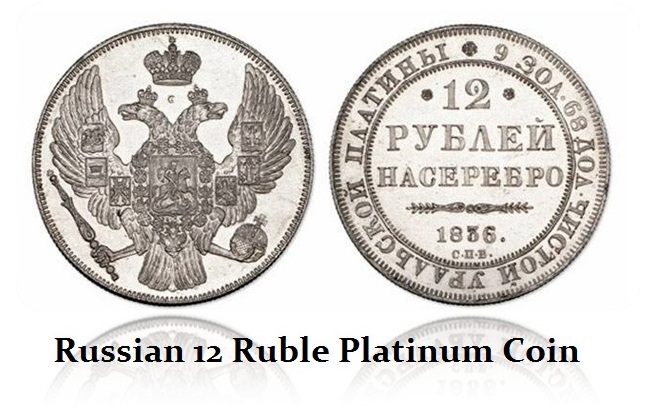 It was not until gold was discovered in Turkey (Asia Minor) in huge quantities that it begins to be exchanged among the lower classes. It first began to trade as electrum, the natural alloy typically mixed with silver. It became desirable as a status symbol because it had been exclusively reserved for royalty. The same eventually took place with platinum until it too was discovered in sufficient quantity in Russia, which only then produced platinum coins.
It was not until gold was discovered in Turkey (Asia Minor) in huge quantities that it begins to be exchanged among the lower classes. It first began to trade as electrum, the natural alloy typically mixed with silver. It became desirable as a status symbol because it had been exclusively reserved for royalty. The same eventually took place with platinum until it too was discovered in sufficient quantity in Russia, which only then produced platinum coins.
The Biblical accounts of money never mentioned gold, only silver. True, gold is mentioned in Genesis: “The name of the first is the Pishon; it winds through the entire land of Havilah, where there is gold. The gold of that land is good; aromatic resin and onyx are also there.” (Genesis 2:11-12). Note that at this point in time, it mentions gold with other commodities including the traditional ox representing valuable commodities not money.
The first five books of the Bible (Torah) are generally believed to have been written after the fall of the Minoan Society and the Bronze Age between the 16th century and the 12th century BC. Recent scholars have dissected the writing style and the fact that Moses is referred to in third person; they attribute the writing to between the 8th and 5th centuries. So at the very least, we are looking at post-eruption of Thera (Santorini), which wiped out Minoan culture and saw the Greek invasions including the famous siege of Troy.
Silver entered the exchange process long before gold. The Egyptian economy was based upon the earliest form of “paper money” in history. For thousands of years, you took your grain to the government and deposited it within an effective grain bank or storage facility in return for a receipt. This was your first REPRESENTATIVE monetary system where paper money (receipt) represented some commodity and it was food – not gold or silver. It was this receipt “non-tangible” that served as money in Egypt from about 3000 BC until its conquest by Alexander the Great in 332BC, who introduced coinage to the Egyptian monetary system for the first time
So you argue that it is MY BURDEN to prove to you that “such a system of intangible money would work.” I am sorry, but you cannot possibly demonstrate that only a tangible monetary system would work when in fact the medium of exchange is solely based upon intangible human desires post-Bronze Age. Before 1650 BC, money was tangible because it was a barter system among people. Money became intangible post-1650 BC (REPRESENTATIVE) and based solely upon CONFIDENCE that others will also accept whatever the form of payment might be.
Gold is a LUXURY — it is not a TANGIBLE based monetary unit for it has no utilitarian value whatsoever. If you try to argue that TANGIBLE based monetary systems are better, that is barter and in that case, the medium of exchange must have some sort of use value such as food or bronze. Never do we see Gold forming some sort of TANGIBLE based monetary system. Gold ONLY emerged as a medium of exchange because it was once exclusively the property of royalty, and as such, it was a luxury with no practical use as food or a weapon. Therefore, gold is not TANGIBLE but it historically also requires CONFIDENCE to exist as a medium of exchange as does paper money or receipts.
You need to get you definitions correct. Any form of a medium of exchange which is TANGIBLE must have some practical utilitarian based value. Gold was a luxury and required the CONFIDENCE that someone else would also desire it for if they did not, then what would you do with it since you could neither eat gold not use it as a weapon.
Paper money is the medium of exchange between two people where one offers a service or something they manufactured, which is no different than a gold or silver coin requiring CONFIDENCE and an agreed value at that moment of exchange. You can no more eat paper money to survive than you can gold or silver. All require CONFIDENCE of a third party accepting it in exchange. For the medium of exchange to be truly TANGIBLE it must have a practical utilitarian value and that historically is the distinction of a barter system vs. post-Bronze Age REPRESENTATIVE/INTANGIBLE based monetary systems predicated upon CONFIDENCE. Gold and food are simply not the same thing.
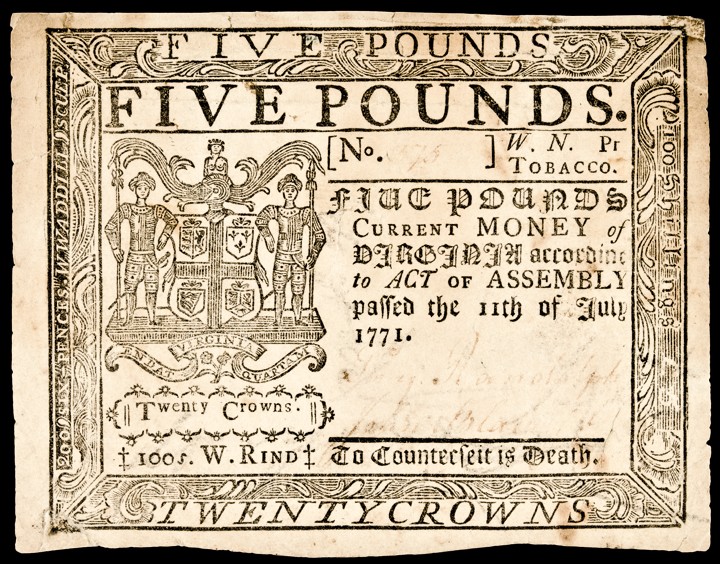 History repeats because people respond the same way all the time. Exactly the monetary system we saw in ancient Egypt before the conquest of Alexander the Great dominated the Southern US states before the Revolution. It was not based upon gold or silver but tobacco. They too issued tobacco backed REPRESENTATIVE money.
History repeats because people respond the same way all the time. Exactly the monetary system we saw in ancient Egypt before the conquest of Alexander the Great dominated the Southern US states before the Revolution. It was not based upon gold or silver but tobacco. They too issued tobacco backed REPRESENTATIVE money.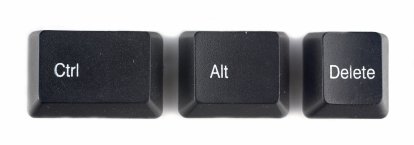
If we head into a Mad Max event, that is the full-blown control-alt-delete which means the ONLY thing of value will be food/weapons. You can have all the gold in the world, but without food, you die. You will depend upon the other person who may want gold, or perhaps not. He may prefer a gun for protection as they once sought bronze to make swords. Your idea that ONLY gold and silver are the “recognized” mediums of exchange shows that you have been brainwashed by gold promoters and are ignoring history.
Gold will rise in “value” expressed in the medium of exchange provided we are NOT going into a Dark Age after 2032. Gold is an “asset” and it will rise in value against money as will all other assets (stocks) when people lose CONFIDENCE in government. Gold is a recognized worldwide commodity for it is the same everywhere which cannot be said for rice, wheat, or even corn. Your statement reveals you have been brainwashed. If you do not look at everything around you, you will lose everything for what you expect from gold is by no means realistic. History warns you are totally wrong for whatever is used as “money” immediately assumes the opposite side of assets within the economy. This sales-job that money must be tangible and therefore it will retain its value is delusional and has NEVER taken place even once throughout history. There is a time to buy gold and there is a time to sell gold BECAUSE that is true about absolutely EVERYTHING.


